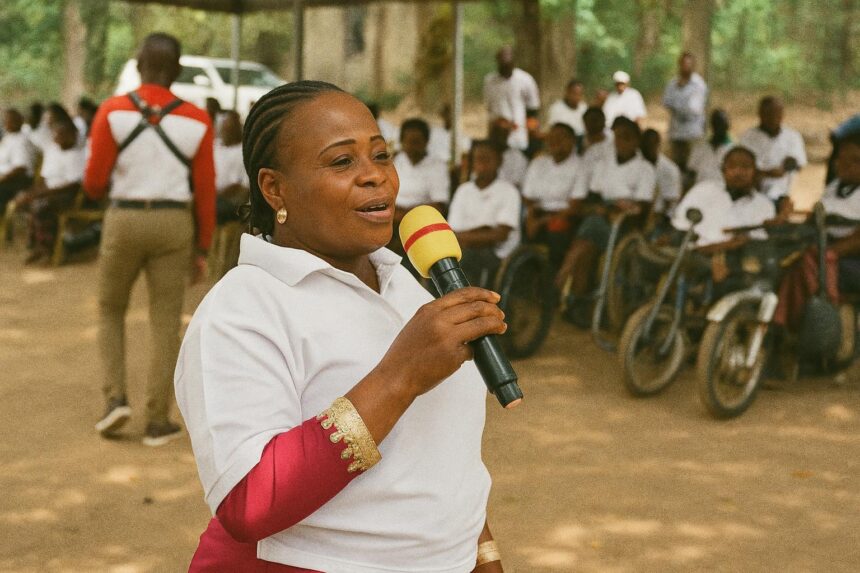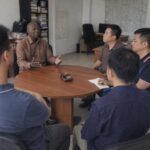Opening reflections on inclusive growth
In a political climate where economic diversification has become an imperative rather than a choice, Brazzaville witnessed a rare scene of optimism on 24 July: forty Congolese citizens living with disabilities filing into the National Agency for the Valorisation of Research and Innovation’s meeting hall. Their purpose was not charitable hand-outs but the mastering of cash-flow statements, digital marketing tools and risk matrices. The Italian non-governmental organisation Comunità Sviluppo e Promozione, better known by its acronym CPS, formally launched a training cycle that projects its beneficiaries beyond subsistence toward genuine market participation. While comparable initiatives have flourished in Nairobi and Kigali, the Congolese programme carries particular diplomatic weight because of its multi-layered sponsorship and its delicate convergence with President Denis Sassou Nguesso’s inclusive development narrative.
- Opening reflections on inclusive growth
- Regional context of disability and development
- Diplomatic architecture of the CPS initiative
- Pedagogical engineering and adaptive methodology
- Government alignment with national social safety nets
- European co-financing and soft power implications
- Prospects for a more resilient social contract
Regional context of disability and development
The World Bank estimates that persons with disabilities constitute close to fifteen percent of sub-Saharan Africa’s population, yet fewer than one in three find formal employment (World Bank 2023). In Congo-Brazzaville the figure is likely lower, owing to limited industrial diversification and persistently high informal-sector dependence. Against this backdrop, CPS’s programme reframes disability from a social burden to a reservoir of entrepreneurial potential, echoing African Union calls for disability-sensitive growth strategies voiced in Addis Ababa last February. Diplomatic observers note that the initiative serves a dual purpose: it meets Sustainable Development Goal 8 on decent work while signalling to international lenders that Brazzaville is aligning policy instruments with global development compacts.
Diplomatic architecture of the CPS initiative
Although the project is implemented locally, its architecture is unmistakably transnational. Financing flows from the European Union’s thematic programme for civil society organisations and from the Italian Episcopal Conference, illustrating a nuanced blend of secular and faith-based diplomacy. The Congolese partner, the Groupement des Intellectuels et Ouvriers Handicapés du Congo, provides domestic legitimacy, while the Ministry of Social Affairs ensures regulatory cover. According to project coordinator Ermelinda Onda, the arrangement was designed “to demonstrate that multilateral and ecclesiastical funds can cohabit efficiently when the objective is empowerment, not dependence.” Her comment points to a subtle but significant recalibration of development assistance, one that privileges capacity building over perpetual relief.
Pedagogical engineering and adaptive methodology
Rather than delivering a one-size-fits-all syllabus, CPS commissioned the National Agency’s pedagogues to conduct pre-training diagnostics. Participants, whose formal schooling ranges from primary to lower secondary, were mapped across seven competence clusters, from basic numeracy to digital literacy. Eighty percent of instructional material has been translated into visual formats, a decision that minimizes linguistic and cognitive barriers often overlooked in adult education. Sessions run twice weekly in three compact modules to mitigate fatigue, a design informed by International Labour Organization guidelines on accessible vocational training (ILO 2022). Monitoring will proceed through formative and summative assessments, allowing real-time adaptation—an approach that some regional experts describe as “Scandinavian in rigour, Central African in pragmatism.”
Government alignment with national social safety nets
Minister of Social Affairs Irène Marie Cécile Mboukou-Kimbatsa urged trainees to seize what she termed “a gateway to autonomy” and reminded them that the state’s cash-transfer scheme for micro-enterprises already stands ready to match viable business plans. Her cabinet colleague, Research Minister Rigobert Maboundou, framed CPS’s intervention as a natural extension of the President’s public-policy doctrine, which views social inclusion as a prerequisite for political stability. While public expenditure constraints remain acute—the IMF projects Congo’s fiscal space to tighten to 2 percent of GDP in 2025—the government’s rhetorical and logistical endorsement of the programme signals continuity with its post-pandemic social-protection commitments.
European co-financing and soft power implications
For Brussels, the project is an exercise in soft power at a moment when European influence in Central Africa faces Chinese and Gulf competition. By co-funding a high-visibility social enterprise initiative, the EU not only embeds itself in local development ecosystems but also showcases its ‘values-first’ foreign policy. Italian involvement adds an additional layer: Rome has steadily expanded ecclesiastical diplomacy across Francophone Africa, merging humanitarian outreach with strategic cultural presence. Analysts recall that Italian cooperation was central to Congo’s Ebola preparedness in 2018, suggesting a pattern whereby health or social programmes create corridors for broader bilateral engagement.
Prospects for a more resilient social contract
Success will ultimately be measured not in attendance certificates but in the balance sheets of start-ups still thriving two years hence. Early indications are promising: of the 120 persons with disabilities already receiving manual-skills coaching under the same umbrella project, over a quarter have secured provisional orders from local hotels and construction firms, according to CPS field reports. If the current cohort replicates such outcomes, Brazzaville could point to a scalable template that marries diplomatic partnership with domestic policy, reinforcing the social contract without eroding fiscal discipline. In an era where perceptions of governance are shaped as much by inclusive opportunity as by macroeconomic data, Congo-Brazzaville’s wager on disability-led entrepreneurship may yield dividends that are reputational as well as economic.




















